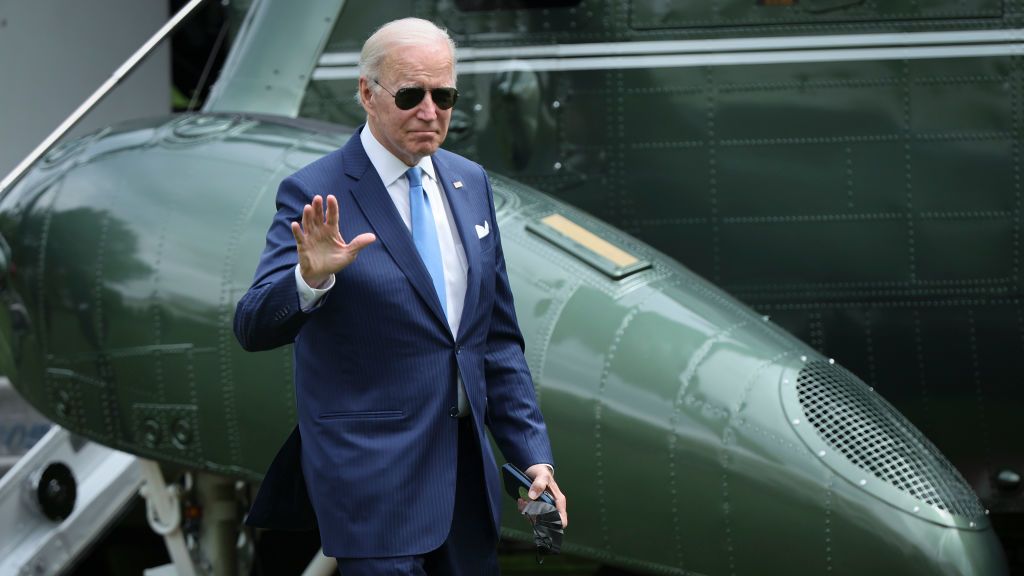US Huawei ban looks set to continue under Biden administration
A final interim rule issued in the last days of Trump's presidency is set to take effect on 22 March


The Biden administration is set to continue with tough restrictions on Chinese tech firms by ushering in a Trump-era rule on technology purchases and deals.
The plans were first reported by the Wall Street Journal and suggest that Joe Biden's office will take the same stance on Chinese technology firms as his predecessor did.
A spokesperson for the Commerce Department said it will continue to accept public comment on the rule until March 22, when the legislation goes into effect. It is thought that a number of US businesses have expressed some concern with the legislation, particularly as it has impacted supply chains around the world.
"Trustworthy information and communications technology and services are essential to our national and economic security and remains a top priority for the Biden Harris administration," the statement said.
The US Commerce Department issued an final interim rule in the last week of Donald Trump's presidency that was aimed at concerns around information and communications technology supply chains. This was set to become effective after a 60-day period of public comment, which would fall under a new administration.
RELATED RESOURCE

The legislation has plenty of critics. In January, the US Chamber of Commerce and industry lobby groups wrote a letter to the Commerce Department suggesting the rule gives "nearly unlimited authority" to intervene in commercial transactions between US firms and foreign counterparts when it involves technology. It argued this would be with "little to no due process, accountability, transparency, or coordination with other government programs."
When it comes to US sanctions on Chinese firms, no company has been impacted more than Huawei. The telecoms giant has been labelled as a security threat based on perceived ties with the Chinese government. The concern is that its telecommunications business will be used for surveillance, but the legislation has instead impacted Huawei's smartphone business more than anything else.
Get the ITPro daily newsletter
Sign up today and you will receive a free copy of our Future Focus 2025 report - the leading guidance on AI, cybersecurity and other IT challenges as per 700+ senior executives
Without access to American software and hardware supplies, Huawei has had to develop its own mobile operating system and find alternative chip manufacturers. In the aftermath of the decision, Google, which was ordered to stop supplying Huawei with its Android OS, suggested the ban would actually lead to more security issues.
Bobby Hellard is ITPro's Reviews Editor and has worked on CloudPro and ChannelPro since 2018. In his time at ITPro, Bobby has covered stories for all the major technology companies, such as Apple, Microsoft, Amazon and Facebook, and regularly attends industry-leading events such as AWS Re:Invent and Google Cloud Next.
Bobby mainly covers hardware reviews, but you will also recognize him as the face of many of our video reviews of laptops and smartphones.
-
 Meta just revived plans to train AI models using European user data
Meta just revived plans to train AI models using European user dataNews Meta has confirmed plans to train AI models using European users’ public content and conversations with its Meta AI chatbot.
By Nicole Kobie
-
 AI is helping bad bots take over the internet
AI is helping bad bots take over the internetNews Automated bot traffic has surpassed human activity for the first time in a decade, according to Imperva
By Bobby Hellard
-
 How to empower employees to accelerate emissions reduction
How to empower employees to accelerate emissions reductionin depth With ICT accounting for as much as 3% of global carbon emissions, the same as aviation, the industry needs to increase emissions reduction
By Fleur Doidge
-
 Worldwide IT spending to grow 4.3% in 2023, with no significant AI impact
Worldwide IT spending to grow 4.3% in 2023, with no significant AI impactNews Spending patterns have changed as companies take an inward focus
By Rory Bathgate
-
 Report: Female tech workers disproportionately affected by industry layoffs
Report: Female tech workers disproportionately affected by industry layoffsNews Layoffs continue to strike companies throughout the tech industry, with data showing females in both the UK and US are bearing the brunt of them more so than males
By Ross Kelly
-
 How can small businesses cope with inflation?
How can small businesses cope with inflation?Tutorial With high inflation increasing the cost of doing business, how can small businesses weather the storm?
By Sandra Vogel
-
 How to deal with inflation while undergoing digital transformation
How to deal with inflation while undergoing digital transformationIn-depth How can organizations stave off inflation while attempting to grow by digitally transforming their businesses?
By Sandra Vogel
-
 How businesses can use technology to fight inflation
How businesses can use technology to fight inflationTUTORIAL While technology can’t provide all the answers to fight rising inflation, it can help ease the pain on businesses in the long term
By Sandra Vogel
-
 Embattled WANdisco to cut 30% of workforce amid fraud scandal
Embattled WANdisco to cut 30% of workforce amid fraud scandalNews The layoffs follow the shock resignation of the company’s CEO and CFO in early April
By Ross Kelly
-
 Some Tech Nation programs could continue after Founders Forum acquisition
Some Tech Nation programs could continue after Founders Forum acquisitionNews The acquisition brings to a close a months-long saga over what the future holds for Tech Nation initiatives
By Ross Kelly